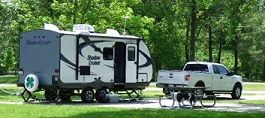Preliminary diagnosis (from x-rays) of Nicky's problem is degenerative joint disease in his knees (back legs) but more tests will be done to check for septic arthritis caused by ticks - could be both. CBCs looked good overall but the more extensive blood work will have to be sent off and she did not want to do that on a Friday; it will be done next week to be sure lab has fresh blood sample from which to work. May also need an MRI but will hold off on that to see if meds help and wait for lab results. One knee is much worse than the other and more likely to require surgery at some point.
In the meantime we have a 30 day treatment plan which includes anti-inflamatory, joint supplement and mild pain meds. She also suggested that while his weight is near ideal, getting about two pounds off might also help. Will try to do that by slightly reducing the amount of food he gets daily. Nicky gets to rest and just move more or less at will over weekend. We will review potential exercise plans next week.
Some info on condition:
Osteoarthritis (Degenerative Joint Disease)
The joint cartilage in freely moving joints may degenerate over time, leading to loss of joint movement and, in many cases, pain. This condition is characterized by thinning of cartilage, buildup of fluid within the joint, and the formation of bony outgrowths around the joint. Joint degeneration can be caused by trauma, infection, the body's own immune system, or malformation during development. This leads to inflammation of the joint membrane, continued cartilage destruction and inflammation, and abnormal joint function.
Signs of osteoarthritis include lameness, joint swelling, wasting away of muscle, and thickening and scarring of the joint membrane. Eventually enough damage can occur that a grating sound might be heard during joint movement. X-rays show increased fluid within the joint, soft-tissue swelling around the joint, the formation of bony outgrowths, hardening and thickening of bone beneath the cartilage, and sometimes a narrowed joint space.
Treatments can be either medical or surgical. Medical treatment may include the use of nonsteroidal anti-inflammatory drugs to reduce pain and inflammation. However, longterm use of these drugs in dogs can sometimes cause gastrointestinal problems such as lack of appetite, vomiting, and inflammation of the stomach and intestines. Corticosteroids also suppress inflammation, but they are usually given only for a short period in order to avoid adverse effects of continued use. Your veterinarian will prescribe appropriate medication based on your dog's signs, age, and overall health.
Surgical options include joint fusion, joint replacement, cutting of the joint, and amputation. The outlook for recovery depends on the location and severity of the joint disease.
Other treatments that might be considered include weight reduction, carefully monitored exercise on soft surfaces, and application of warm compresses to affected joints. Joint-fluid modifiers may help prevent further cartilage degradation.
Septic Arthritis
Infectious, or septic, arthritis is usually caused by bacteria that spread through the blood or enter the body as a result of trauma (with penetrating wounds) or surgery. Other causes of septic arthritis include rickettsia (Rocky Mountain spotted fever, ehrlichiosis) and spirochetes (Lyme disease). seeInfections: Introduction to Infections
Signs of septic arthritis include lameness, swelling, pain of affected joint(s), fever, listlessness, loss of appetite, and stiffness. X-rays may reveal increased fluid within the joint in early cases and degenerative joint disease in longterm conditions. Laboratory tests on fluid removed from the joint may be useful in confirming the diagnosis.
Treatment consists of antibiotics administered orally or intravenously, flushing of the joint cavity, and surgical removal of dead, damaged or infected tissue in severe cases.
Nicky initial diagnosis - Update 4/9/15
22 posts
• Page 1 of 2 • 1, 2
Nicky initial diagnosis - Update 4/9/15
Last edited by bluepinecones on Thu Apr 09, 2015 6:09 pm, edited 1 time in total.
The only major handicap in life is a bad attitude!
-

bluepinecones - Posts: 4870
- Joined: Mon Jan 26, 2009 1:58 pm
- Location: North AL
Re: Nicky initial diagnosis
Glad you've got a treatment plan - hopefully it will ease Nicky's pain while the vet figures out the next step.
Thanks for keeping us in the loop.
Tell Nicky that Sadie says Hi & hope he feels better soon.
Thanks for keeping us in the loop.
Tell Nicky that Sadie says Hi & hope he feels better soon.
Catherine & Sadie
California

California

-

cnq50b - Posts: 1675
- Joined: Tue Jul 10, 2012 8:31 pm
- Location: LA area California
Re: Nicky initial diagnosis
Peaches sends Nicky healing thoughts. I know both my last dogs had hip problems - manageable by meds - but knees, might be a bit more work. I just want Nicky to be painfree and happy - and that will help you be happy, too!
Thanks for sharing this with us and keep us up-to-date on what the vet finds.
Thanks for sharing this with us and keep us up-to-date on what the vet finds.
Beth
“Dare to live the life you have dreamed for yourself. Go forward and make your dreams come true.” ~ Ralph Waldo Emerson ~
"He who treasures the small things in life has found the path to true happiness"

“Dare to live the life you have dreamed for yourself. Go forward and make your dreams come true.” ~ Ralph Waldo Emerson ~
"He who treasures the small things in life has found the path to true happiness"

-

Bethers - Posts: 17807
- Joined: Sat Jul 12, 2008 9:00 pm
- Location: Arizona
Re: Nicky initial diagnosis
it helps to know I think...and now you have a plan
sheila
sheila
- snowball
- Posts: 9495
- Joined: Mon Jul 21, 2008 10:14 pm
- Location: we full time right now in Quartzsite AZ
Re: Nicky initial diagnosis
Get well wishes from us Nicky.
Velda
Velda
- MandysMom
- Posts: 4358
- Joined: Sat Sep 14, 2013 8:26 pm
- Location: Roseville CA
Re: Nicky initial diagnosis
At least you know what's going in. Hopefully the meds help. Now he can rest and get waited on all weekend. 
Sue and the Furry Crew
- Colliemom
- Posts: 5223
- Joined: Wed Apr 07, 2010 6:49 pm
- Location: Northern Michigan
Re: Nicky initial diagnosis
I hope the meds are helping and he feels better. Big hugs for you both.

Redetotry
BJ
-

Redetotry - Posts: 4998
- Joined: Tue Jul 15, 2008 7:36 am
- Location: Illinois
Re: Nicky initial diagnosis
hope the meds help Nicky to feel better. We never like seeing our babies hurt.
Somewhere with Ava and Maggie


-

avalen - Posts: 9430
- Joined: Mon Jul 14, 2008 5:13 pm
- Location: Apache Junction Arizona
Re: Nicky initial diagnosis
Happy to hear you have a treatment plan. As you know I'm very fond of Nicky - kiss that adorable face for me. My guys send big puppy kisses, too.
-

retiredhappy - Posts: 4438
- Joined: Sun Jul 13, 2008 9:59 pm
- Location: Kerrville, Texas
Re: Nicky initial diagnosis
Glad he is feeling better.
You might want to consider http://www.drsfostersmith.com/product/p ... atid=24402 I have been using Missing Link with Radar for several years. She was 14 in February and still has no problem jumping up or off our mattress which is quite high. It also improves their coat and eliminates a lot of shedding.
You might want to consider http://www.drsfostersmith.com/product/p ... atid=24402 I have been using Missing Link with Radar for several years. She was 14 in February and still has no problem jumping up or off our mattress which is quite high. It also improves their coat and eliminates a lot of shedding.
My mind works like lightning...one brilliant flash and it's gone.
- dpf
- Posts: 1939
- Joined: Mon Jul 21, 2008 5:15 pm
- Location: SE SD
Re: Nicky initial diagnosis
Sarah I am sure your vet has made you aware of the different types of anti inflammatories. Personally I don't like Rimadyl, I prefer to use Previcox. Molly has issues with arthritis and we have found that she has had good relief from pain with Adequan IM injections. There are also laser treatments that have helped some dogs find relief from pain.
FYI even though your pet has been vaccinated for Lymes disease, they can still show a blood titer if they have been exposed to it at some point in their lives. It doesn't automatically mean they "have" the disease, just that they have had exposure to it. Carrie's dog Willy has had this show up on his bloodwork and they put him on anti-bi's as a preventative measure. But he will always test positive for Lymes from now on.
FYI even though your pet has been vaccinated for Lymes disease, they can still show a blood titer if they have been exposed to it at some point in their lives. It doesn't automatically mean they "have" the disease, just that they have had exposure to it. Carrie's dog Willy has had this show up on his bloodwork and they put him on anti-bi's as a preventative measure. But he will always test positive for Lymes from now on.
Any day spent in the company of my animals is a good day.
- gingerK
- Posts: 1553
- Joined: Wed Nov 27, 2013 11:12 am
- Location: Illinois
Re: Nicky initial diagnosis
I'm imagining Nicky feeling better today with the pain meds, and better this week as the anti-inflammatories kick in. Whew!  Your vet sounds like she's on top of his condition. There's nothing like a good vet. Keep us posted, ok?
Your vet sounds like she's on top of his condition. There's nothing like a good vet. Keep us posted, ok?
Louise
 and The William too!
and The William too!
-

havingfunnow - Posts: 1463
- Joined: Thu Aug 23, 2012 3:13 pm
Re: Nicky initial diagnosis
Sarah glad you and Nicky are home safely... also glad you were able to get him into the vet fast... poor fella... scratch his ear for me and tell him he is special and will be feeling better soon...
Kathleen or Kathy
Use today wisely it's all you have; yesterday is a memory; tomorrow a dream... KLW[/b][/color]
Use today wisely it's all you have; yesterday is a memory; tomorrow a dream... KLW[/b][/color]
-

dayspring39 - Posts: 2692
- Joined: Sat Dec 20, 2008 11:19 am
Re: Nicky initial diagnosis
Sarah,
Glad to hear Nicky is doing better and there is a plan for treatment. Yes, some people do not like Rimadyl because it can have an effect on kidneys. My Molly was on it for her last 5 years and no problem. Just have the blood test done every 6-12 months to make sure.
Molly also had the laser treatments which I highly recommend if your vet does them. Molly was like a new dog immediately with her first treatment, and that was before her knee surgery.
Keep us informed of Nicky's progress. You know we all love our fur kids and worry about our and every one else's.
Glad to hear Nicky is doing better and there is a plan for treatment. Yes, some people do not like Rimadyl because it can have an effect on kidneys. My Molly was on it for her last 5 years and no problem. Just have the blood test done every 6-12 months to make sure.
Molly also had the laser treatments which I highly recommend if your vet does them. Molly was like a new dog immediately with her first treatment, and that was before her knee surgery.
Keep us informed of Nicky's progress. You know we all love our fur kids and worry about our and every one else's.
- IrishIroamed
- Posts: 2558
- Joined: Fri Jul 19, 2013 8:47 pm
- Location: Wherever I'm Parked
Re: Nicky initial diagnosis
Thanks for all the well wishes and info on meds. I've researched the ones he is currently on plus some others - really don't like possible side effects of any of it but seems a necessary evil for now. He does appear to be more comfortable and so far has been able to get up on his own this morning.
The only major handicap in life is a bad attitude!
-

bluepinecones - Posts: 4870
- Joined: Mon Jan 26, 2009 1:58 pm
- Location: North AL
22 posts
• Page 1 of 2 • 1, 2
Who is online
Users browsing this forum: No registered users and 9 guests


